Claim AFL ‘cult icon’ Jeffrey ‘Joffa’ Corfe sexually abused 16-year-old at train station urinal
A prominent figure in the AFL community, convicted of sexually assaulting a 14-year-old boy, has been accused of an attack on another teen in a train station toilet.
Three years after allegedly being sexually assaulted by a man in a train station toilet, Mark Behrens watched in horror as his alleged attacker’s face appeared on his TV screen.
Jeffrey ‘Joffa’ Corfe had become a cult figure in football, dubbed Collingwood Football Club’s number one fan and the eccentric leader of its cheer squad.
The father and Salvation Army social worker was suddenly everywhere, and it made the Melbourne youngster he allegedly abused sick to the stomach.
“He became this cult icon – Joffa the Collingwood superfan,” Mr Behrens recalled. “I recognised him immediately and my heart sank. I felt disgusted.”
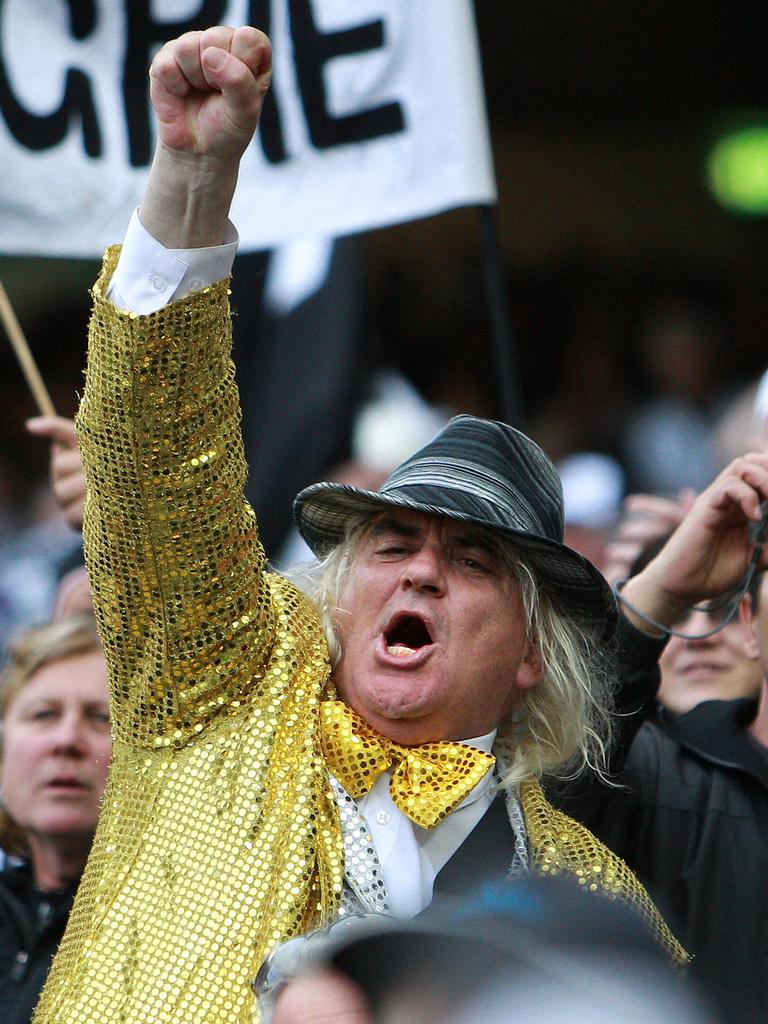

But he remained silent for almost two decades, fearful he wouldn’t be believed, eventually coming forward after Corfe was arrested and charged for the sexual assault of another child.
“It was pretty devastating. I was stunned and it all sunk in at that point. I realised I had to deal with it finally after all those years, so I went to the police.”
Now, Mr Behrens is waiving his right to anonymity and speaking out as part of his healing journey.
While police investigated the allegation and were unable to lay charges due to a lack of evidence, the Victorian Victims of Crime Assistance Tribunal assessed the claims and found them to be credible on the balance of probabilities.
Corfe, now 64, strenuously denied the allegations.
“The incident never occurred,” he told news.com.au. “[It] has been investigated by police, which resulted in insufficient evidence.”
‘A safe space for teens’
In 1998, when he was 15, Mr Behrens called a telephone chat line for gay teenagers, as he came to terms with his sexuality and struggled to find friends who understood him.
“It was like a social network for young people before they existed,” he explained.
“I think it even predated internet chatrooms. You’d call up and get connected to random people in your city to chat.”
Also using the service was Corfe, who said his name was David. Despite being 40 at the time, he befriended Mr Behrens, and they spoke regularly over the course of several months.
Do you know more? Email shannon.molloy@news.com.au
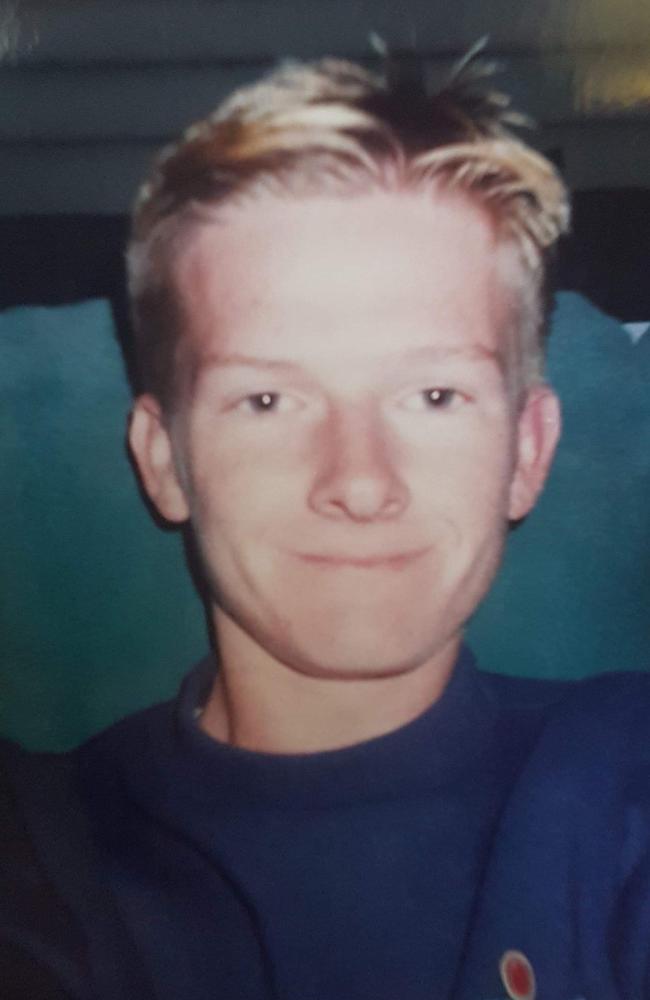
“He felt like a big brother. He offered me advice. He was guiding me through what I was struggling with. He asked me a lot of questions about my life.
“He told me he was a social worker and so there was trust there. He made me believe his heart was in the right place, that he just wanted to help me out.”
In March 1999, Corfe invited him to the AFL season opener at the MCG to watch Collingwood take on Hawthorn.
It was a special treat to celebrate Mr Behren’s 16th birthday two weeks prior.
“It was a really nice day out. We hung out for hours. We had lunch and chatted away. He was a bit of a bogan, and it was evident he’s not too bright, but he was lovely.
“He seemed like a normal, average guy.”
At the end of the match, Corfe walked him to Flinders Street Station so he could catch his train home.
“I went to the toilet to pee and after a few minutes, he followed me in and assaulted me there at the urinal, in broad daylight,” Mr Behrens alleged.
“Someone walked in, saw us and gave us a weird look. That allowed me time to pull my pants up and get the hell out of there. Thank goodness for that.”
Mr Behrens fled and got on his train.
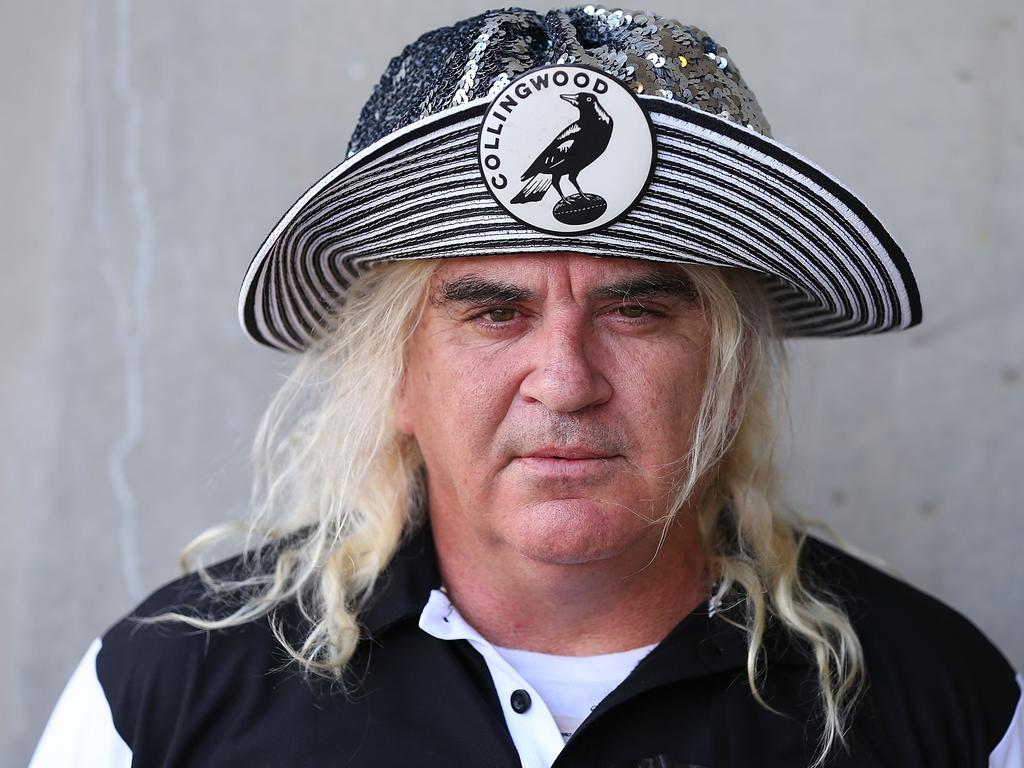
A few weeks later, Corfe phoned him and acted as though nothing had happened, but the traumatised teenager hung up on him.
“I never heard from him again. I never saw him again, until he popped up in the media.”
Years of pain and trauma
In the immediate aftermath of the alleged assault, Mr Behrens quietly collapsed into himself.
“It was so upsetting. I thought I had made a friend, like I’d found someone who understood me and saw me. That’s why it was such a kick in the guts when he assaulted me.
“He was one of the first gay people I’d ever met. I felt used. It was degrading. That’s a pretty horrible way to feel as a teen.”
He blamed himself for what had happened, feeling naive and gullible for being duped, and a toxic seed was planted deep in his soul.
Mr Behrens became withdrawn and pushed away friends who were concerned about his darkened mood.
“I just felt so ashamed and guilty. I kind of isolated myself in a way. I became a bit reckless.”
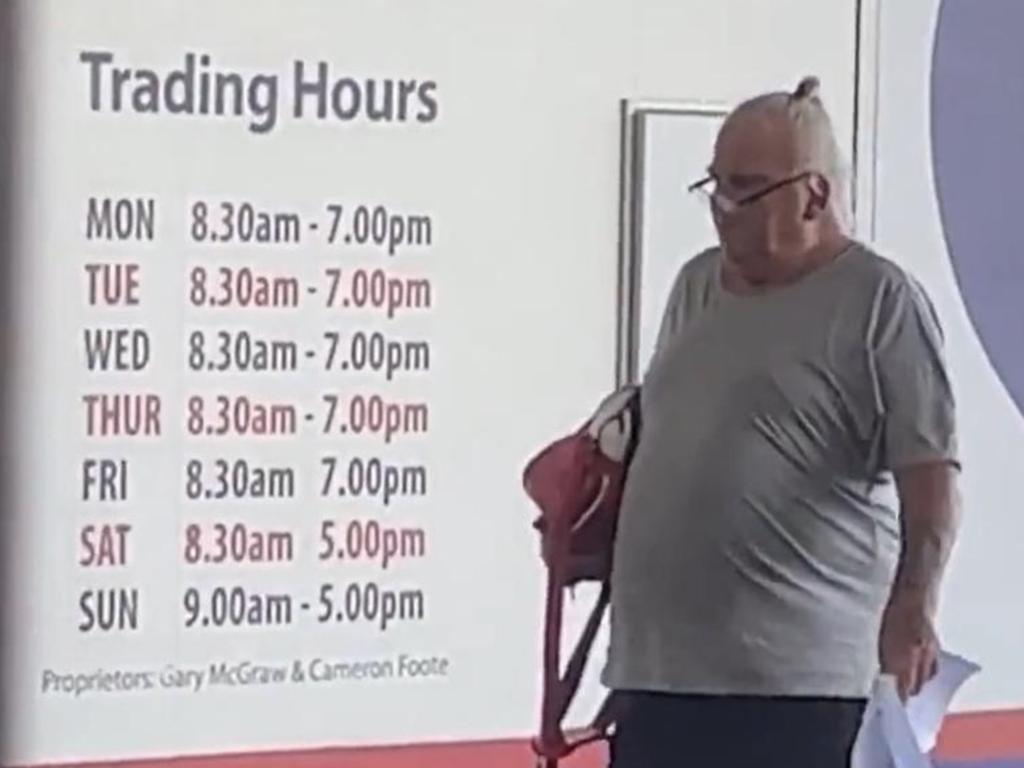
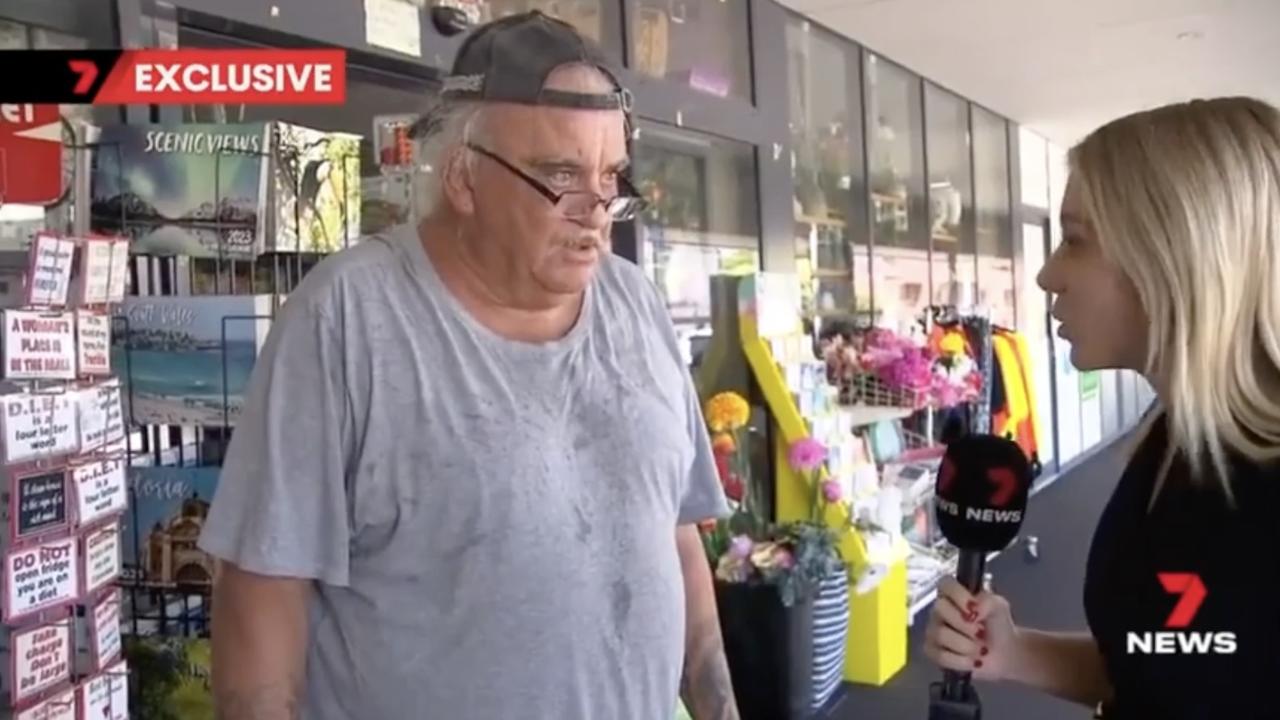
It was wildly out of character for a teen who had been outgoing, confident and happy.
“I had a really good childhood. My family was awesome, and I was really busy with school and Navy cadets, and I worked in the theatre too.
“I was a child performer and was essentially working from a young age. I went to talent school for dancing and then pivoted into acting. I got some really good roles – some pretty big stage roles.
“I was in An Inspector Calls in 1995 when I was 12. I was an understudy for Beauty and the Beast with Hugh Jackman too. I spent a lot of time around adults, and I had a bit of responsibility, so I felt a bit grown-up.
“I thought I knew how the world worked. Obviously, I didn’t. And I felt like a fool.”
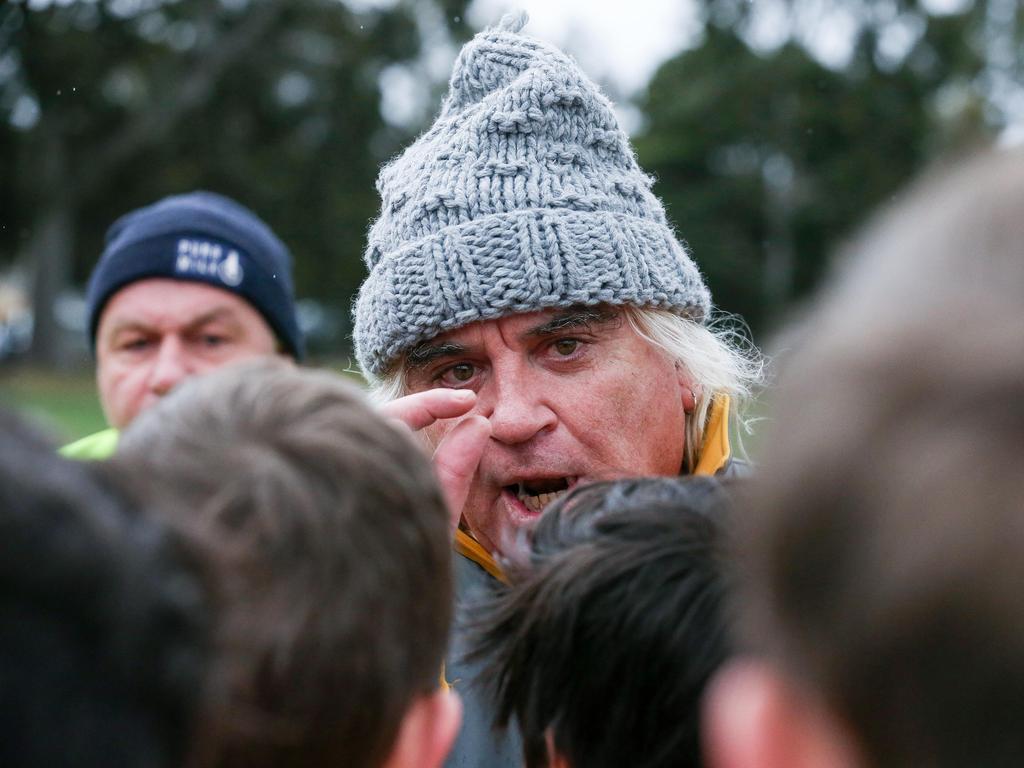
Corfe’s alleged assault also derailed Mr Behrens’ desperate efforts to reconcile himself with his sexuality.
Being used and degraded in such a way, in such a shocking breach of trust, made him question so much about his identity.
“He manipulated me and it derailed my life in many ways, and it was a really horrible introduction to the gay world. It warped my view of it.”
Corfe insisted the accusation is “incorrect and untrue”.
‘Like a shadow following me’
In 2002, Corfe gained a sudden media following as the colourful Collingwood supporter who donned zany hats and a gold sequin jacket at Magpies games.
He was a fan favourite and an increasingly prominent figure whose face Mr Behrens couldn’t escape.
“He was everywhere. For years. I just tried to ignore him, but I felt sick to my stomach every time.
“I thought, ‘You’ve got to be kidding me. You do that and then you get to have a media career?’ But I felt like it was too late to report it. It had been three years by then. Obviously, it’s never too late, but I just didn’t realise it at the time.
“I thought I wouldn’t be believed, or that no-one would care. It was 1999. It was a different era, you know? And I just didn’t have the courage to come forward. I was embarrassed too.”
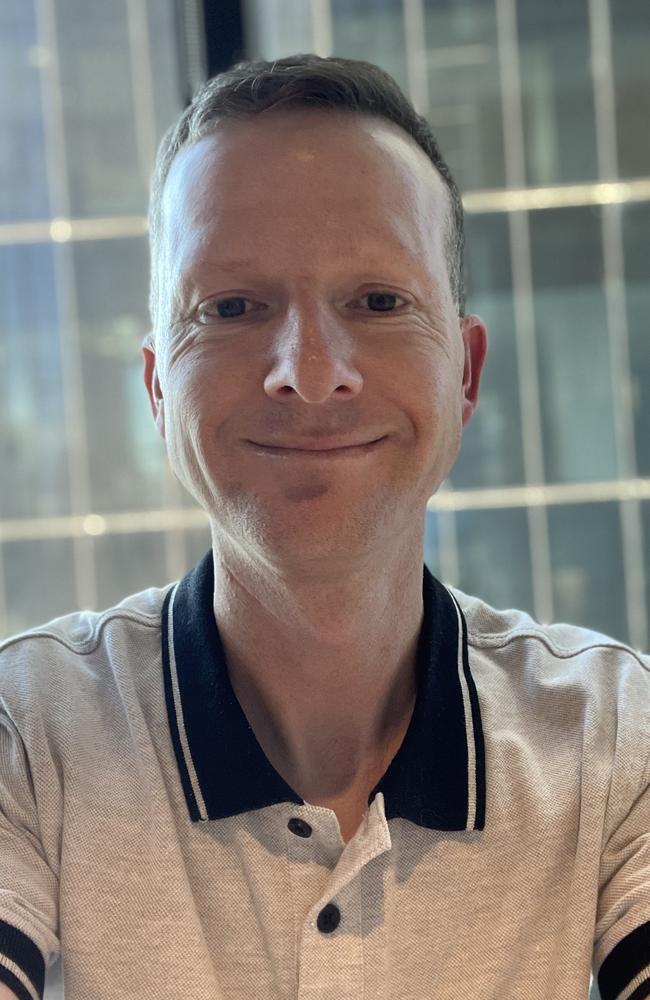
The horrific events of that afternoon in early 1999 were never far from his mind, as hard as he tried to move on with his life.
“I could never shake what happened. It would pop into my head from time-to-time, probably every couple of months.
“It was like I couldn’t escape him. He was like a shadow following me.”
Mr Behrens probably would’ve taken his dark secret to the grave, never disclosing what he had endured as a 16-year-old.
But in 2021, the news broke that Corfe had been arrested and charged with sexually penetrating a minor over the sexual assault of a 14-year-old boy in 2005.
Mr Behrens felt distraught. And then he was mad.
“I just felt angry. For a long time, I assumed I was the only one, but then when he was charged, I realised he had done it to someone else. I decided to go to the police.”
‘A credible account’
When he walked into the Victoria Police Centre in Docklands, Mr Behrens was nervous and uncertain.
He didn’t know what to expect, given so much time had passed between the alleged attack and his decision to report it.
But the officers he encountered were “great” and took him seriously.
“And they found me credible, but there just wasn’t enough evidence to charge him. There wasn’t much of a paper trail – it was 1999 and on the telephone.
“The CCTV footage from Flinders Street Station was long gone, obviously. The MCG does keep its footage and police combed through hours of it from that day, but the video quality wasn’t great and there were too many people. They couldn’t see us.
“Corfe had also paid in cash for the game, so there was no credit card transaction or anything like that.”

Officers trawled through his father’s phone records and were able to identify calls from Mr Behrens to the phone chat line, as well as directly to and from Corfe’s home telephone.
“When they told Corfe that, he went from saying he had never met me or heard of me, and didn’t know who I was, to admitting that he did in fact know me,” Mr Behrens said.
“Also, I had told the police the fake name that he gave me when he first started chatting. It was the exact same name he gave the other victim. That detail hadn’t been released. That was pretty telling.”
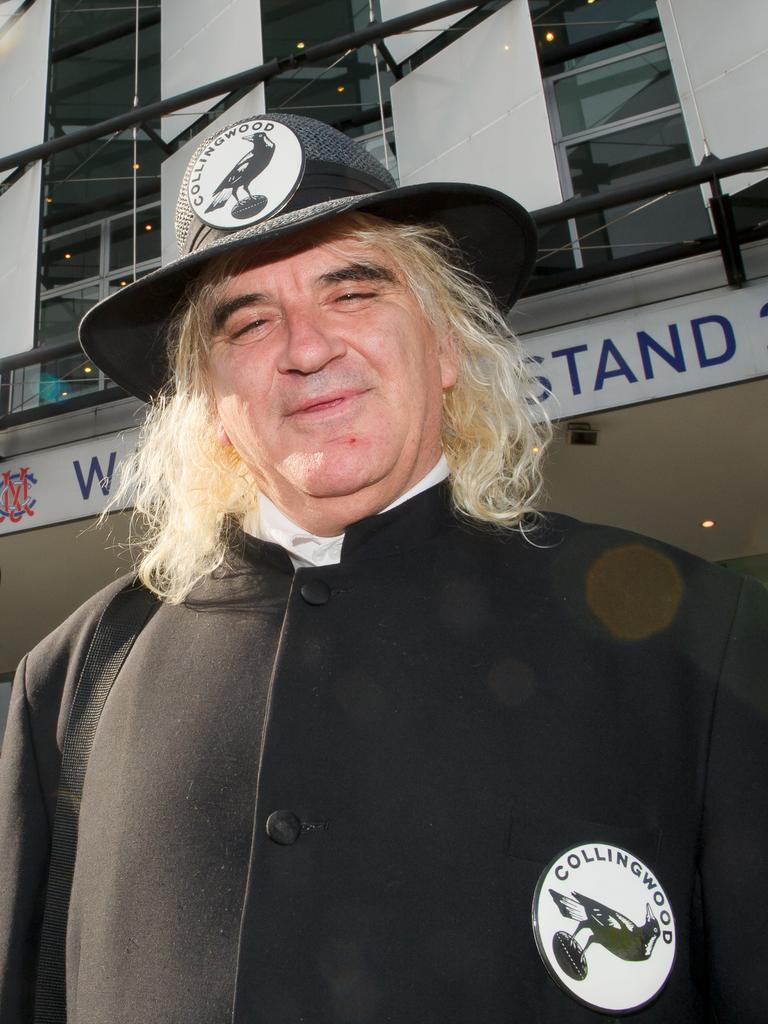
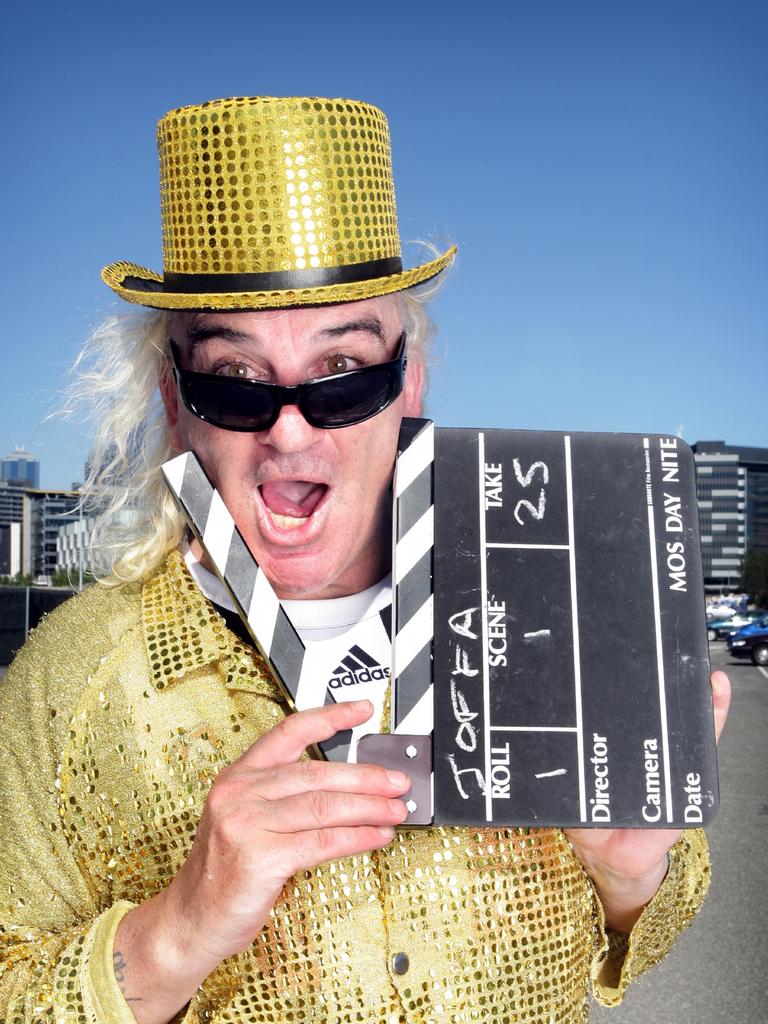
There were other specific pieces of information that he recalled that were deemed credible.
But the heavy burden of proof meant investigators didn’t have enough to charge Corfe.
Mr Behrens was referred to Victoria’s Victims of Crime Assistance Tribunal, which commenced a review of his allegation.
The tribunal stresses that while victims don’t need a criminal charge or conviction to receive support, they must have evidence that “shows that an offence was committed”.
Applications are determined by tribunal members, who are also Magistrates or Judicial Registrars of the Magistrates’ Court of Victoria, who must be “satisfied, on the balance of probabilities, that … a violent crime occurred”.
“They determined that my claims were credible,” he said.
“That was after a long process of investigation, a lot of questioning – some really invasive questions, but necessary ones. Their review took about nine months.
“There was enough for them to be satisfied that the offence occurred. Corfe was invited to challenge the finding, but he declined.”
Mr Behrens was awarded damages, which covered the cost of seeing a psychologist.
That small form of justice plus help from a mental health professional marked a turning point for him.
“I had blamed myself for being duped. I blamed myself for what had happened, and I felt disgusting. I felt like an idiot for not seeing the red flags and being so gullible.
“I carried that around for years and it was so damaging.
“The psychologist helped me to understand that I wasn’t to blame. I was a kid. He was an adult.”
Startling similarities with second victim
Alex Case was 14 when he received a message via the chat service MSN from a man named David, who said he was 30.
It was 2005 and like Mr Behrens, the teenager was confused about his sexuality and looking for friends to talk to.
He conversed via email with ‘David’ for several months. In reality, it was Corfe he was writing to, who was 44 at the time.
He invited Mr Case to his Coburg home to meet and he was greeted by a dishevelled and much older man, who led him into a darkened room and sexually assaulted him, the sentencing remarks in the matter detailed.
Later, the devastated boy emailed him, telling him he shouldn’t have done what he did, and Corfe replied, agreeing with him.
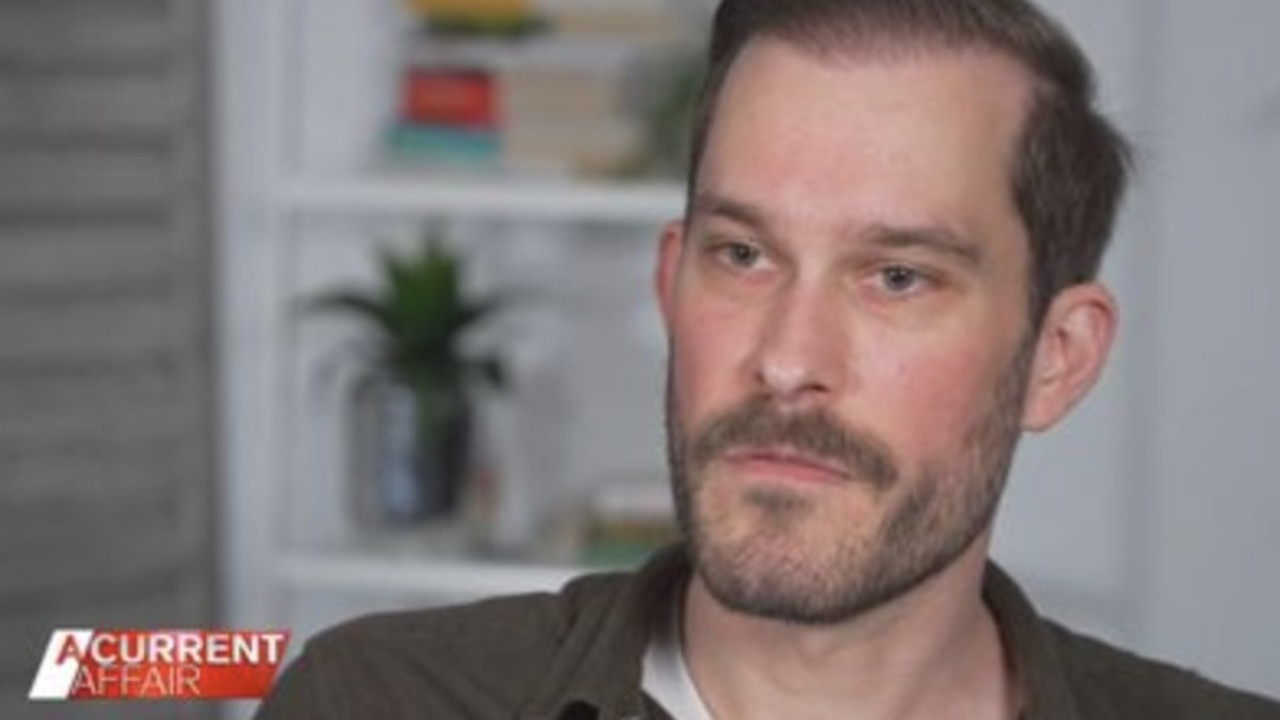
That email would form a crucial part of police evidence when detectives arrested him in 2021, after Mr Case came forward.
The following year, Corfe pleaded guilty to the charge of sexual penetration of a minor and was convicted.
But he never spent a day in prison after his 12-month sentence was wholly suspended by Victoria County Court Judge Gerard Mullaly.
Mr Mullaly based that decision on character references tendered by Corfe’s lawyers, including one from beloved community figure Father Bob Maguire.
Those references were described as “powerful testimonials” that showed a “lifelong commitment to helping others”. The judge further noted the references were “impressive”.
“It is more than saying he has good character and without any real blemish, before and more importantly, since this offending,” he said.
The judge also described the assault of his 14-year-old victim as a “one-off”.
“The emails were in the end sexualised communications with a child who had made clear he was a child,” Mr Mullaly added, stressing it was a “serious and depraved offence”.
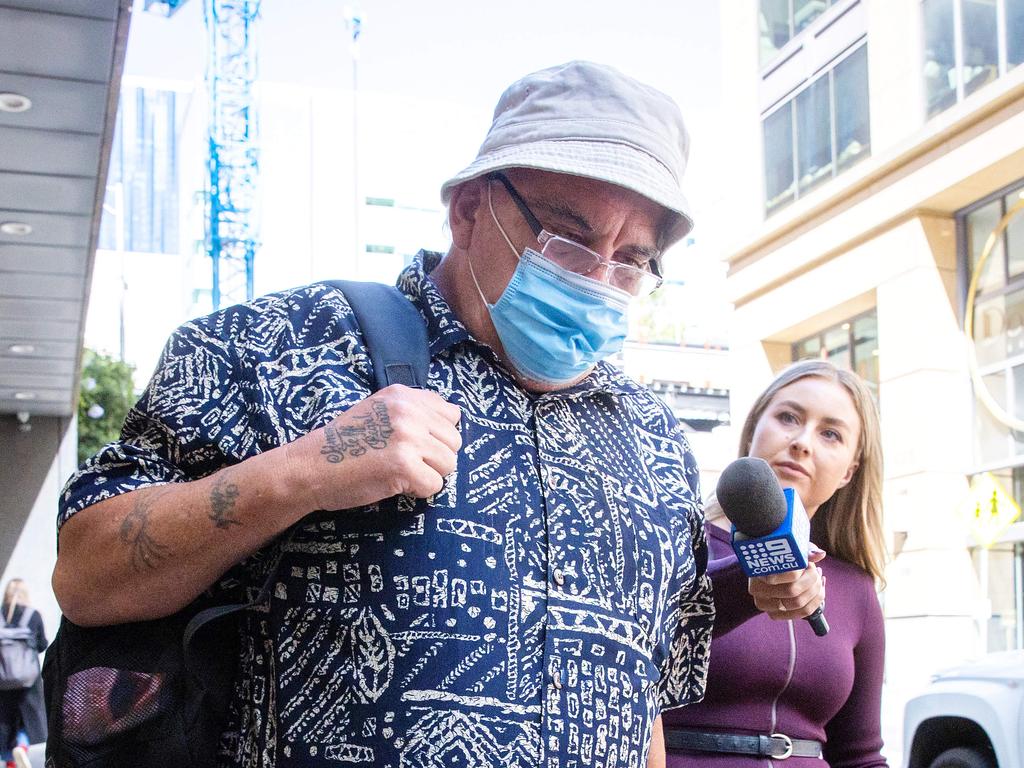
Corfe’s daughter Emma also provided a statement to the court in support of her father, who she described as a “good man”.
“My dad is a good man. A man of his word. A man of integrity. I can truthfully say my dad’s life has been one of helping others.”
Mr Case, who also waived his right to anonymity, bravely appeared in court to deliver his victim impact statement.
“What you did to me that day in 2005 planted something so toxic in my mind that I was convinced I was a bad person and didn’t deserve anything good,” he told his attacker.
“I now know and believe that I’m a good person, I deserve to be happy. I did not deserve to spend those years hating myself.
“But now that I understand that I was not to blame for what you did to me, sometimes I feel like I’m mourning the 15 years that I lost.
“Having to give evidence when you knew you were guilty was extremely traumatising.”
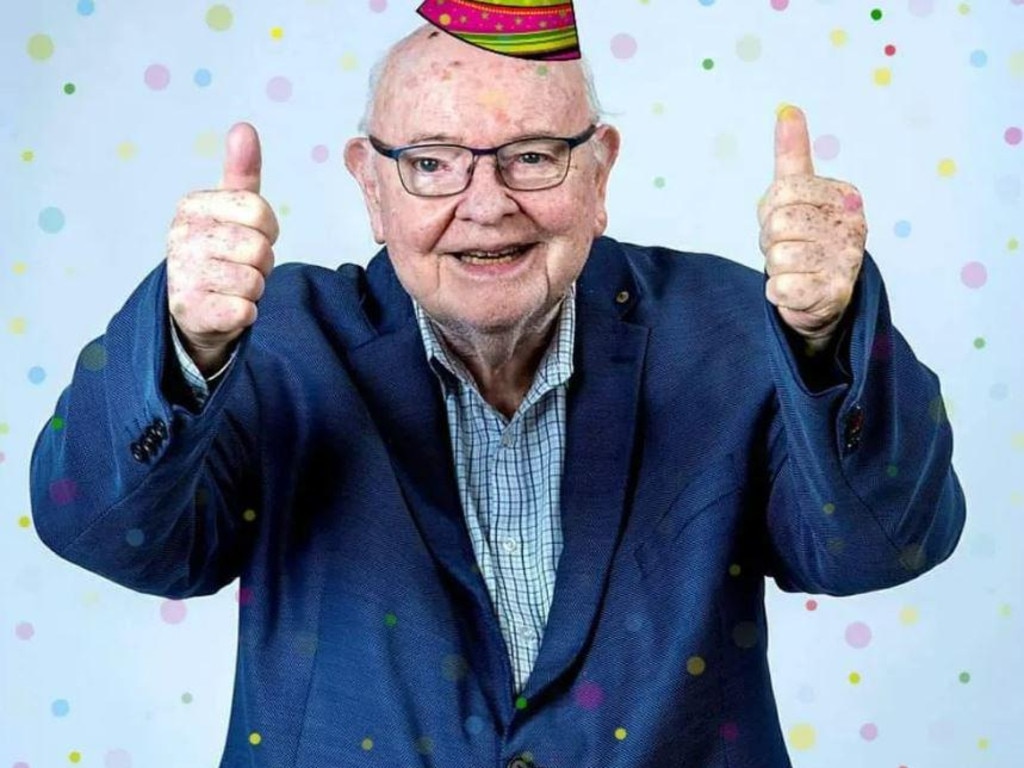
After the sentence, Mr Case urged prosecutors to appeal but they opted not to.
Corfe now lives in Ipswich, west of Brisbane, in southeast Queensland on a quiet suburban street alongside families with young children.
In early 2023, he was approached by a Channel 7 reporter, whom he told: “I’m no danger, believe me I’m no danger to anyone.”
He also implied there was more to the story, saying: “One day I’ll sit down with someone and have a really good talk about this.”
He declined an invitation to apologise to his victim.
‘People need to know’
At long last, after many years, Mr Behrens said he’s now in a good place in his life and has largely moved on from what happened to him.
But in healing, the respected finance industry figure said he has “found my voice” and is determined to use it.
“From first reporting Corfe to police to getting the VOCAT determination was almost three years. It’s been a long process. I’m ready.”
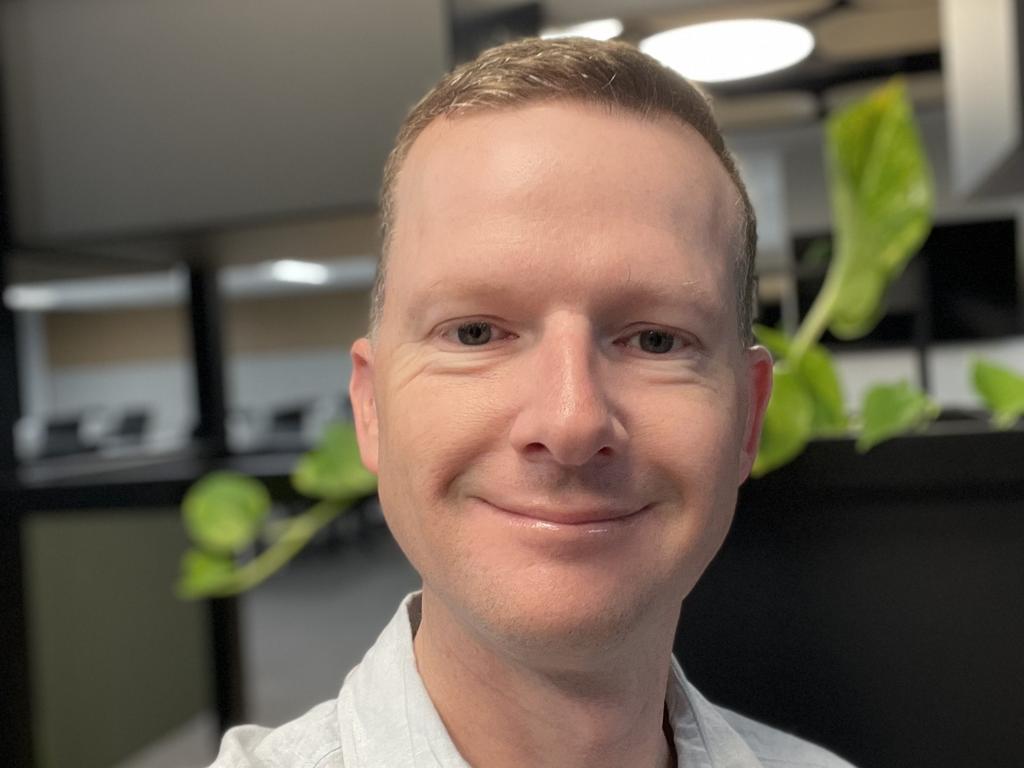
Mr Behrens also wanted to express his disappointment at the “appalling” sentence Corfe received, to show the community that perpetrators of horrific crimes against children are so often inadequately held to account.
“He walked free. He sexually assaulted a child and there was no justice. It’s just appalling.”
And he wants to encourage Australians to have a conversation about child safety and the realities of the world, particularly in the social media era.
“I think it’s important to talk about this so people are aware that monsters like this are out there. I imagine it’s so much worse in this digital world too.
“There are people lurking who don’t have good intentions. We need to talk about that so other kids don’t go through this.”






